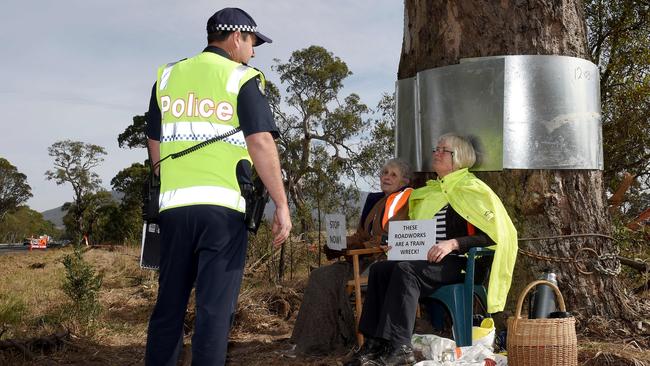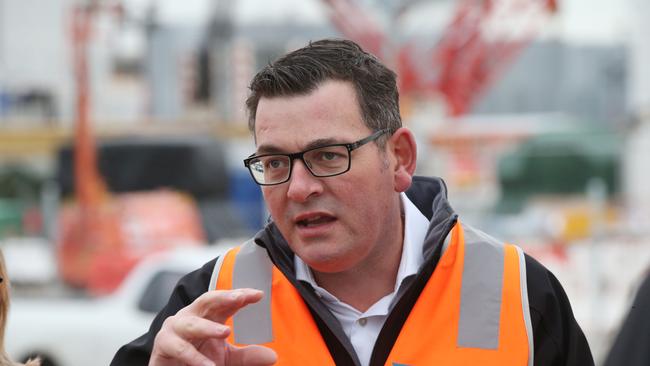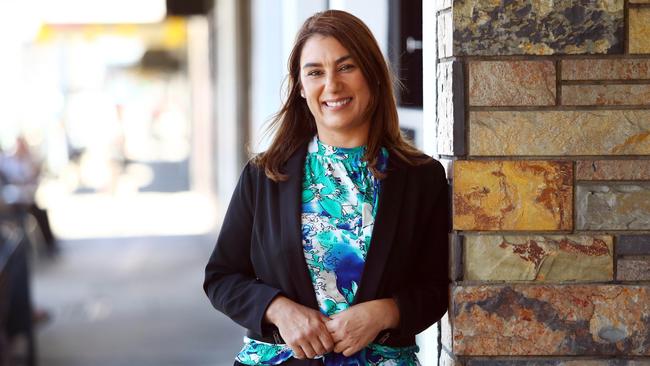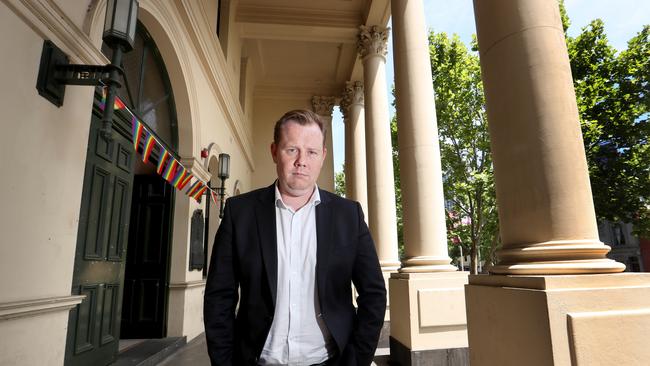Western Highway upgrade could be battleground over state treaty with indigenous Victorians
Protests over the Western Highway upgrade could disrupt the state government’s plans to sign a treaty with indigenous Victorians, writes Matt Johnston.

A fortnight ago, a young woman tried to glue her hands to state parliament railings. She was hauled off by police, who said they had arrested a 24-year-old from Preston.
The woman was part of a group claiming to support the Djab Wurrung people — indigenous Australians who identify with central and western Victoria.
The Djab Wurrung group is in the middle of a far bigger protest near Ararat, where it wants to block the $672 million Western Highway upgrade to protect what it says are culturally important trees.
The protesters recently failed to get the trees heritage-listed and were issued with an eviction notice that has been ignored. Police could be called in at any time to boot them off the site.
But what seems to be a simple “move on” matter is proving to be far more complex.
The Andrews Government is treating the matter with intriguing sensitivity, despite money being lost hand over fist and the timeline for fixing a dangerous road being blown out.

The Western Highway is the main link between Melbourne and Adelaide and is being upgraded because 11 people have died in crashes over recent years. Planning began in 2012 to upgrade the 12.5km stretch between Buangor and Ararat, via a state and federal government partnership. There have been intensive consultations.
A Registered Aboriginal Party, Martang Pty Ltd, was involved early on and, in 2017, the government also started dealing with the Eastern Maar Aboriginal Corporation.
A RAP is an organisation that holds decision-making responsibilities under state law for protecting indigenous cultural heritage in a particular area. The government doesn’t pick which group becomes a RAP; it is decided by the Victorian Aboriginal Heritage Council.
During consultation with the RAPs (the Djab Wurrung group is not one) the issue of culturally important birthing trees — places where Aboriginal women once gave birth — was raised and federal applications were made for heritage listing.
Even though heritage listing failed, the alignment of the road was altered to avoid bulldozing the two trees.
That added millions of dollars to the cost of the project but satisfied Eastern Maar. But other protesters weren’t satisfied and insisted there were other culturally important trees around. A sheep farmer has also mounted a Supreme Court challenge to the planning process.
Former Greens MP Lidia Thorpe, who identifies as a Gunnai-Kurnai Gunditjmara mother, is among those demanding that the route be altered again.
The state government doesn’t want to come down hard on Djab Wurrung protesters because of negotiations for a broader Treaty with Aboriginal Victorians.
This is effectively an agreement between indigenous communities and the state that could include a greater involvement of Aboriginal people in certain matters, a recognition of past wrongs, or official apologies.
The first elections to Assembly — the body made up of Aboriginal leaders who will negotiate Treaty for each state region — are about to kick off.

How is it going to look if the government or project builder marches on to the Western Highway site and tells indigenous people to get out of the way, even if the Registered Aboriginal Party is satisfied with the project?
One candidate for the Treaty Assembly, Sissy Austin, told NITV News recently that “what the government are doing to Djab Wurrung country is every single alarm bell in an unhealthy and violent relationship”.
A hashtag saying “no trees, no treaty” is used by protesters.
Some government and Aboriginal leaders fear the road brawl is being used in a broader political fight over what a Treaty should look like and who should be involved.
The state and federal governments believe they have a pretty strong argument to proceed on the Western Highway.
Premier Daniel Andrews has said previously that arrests would be “regrettable” at the site, but that work needed to begin and protesters shouldn’t stay in the way. “I would always respect people’s right to peacefully protest, but I think the point’s been made and people now need to peacefully move on,” he said.
There is now a growing concern that the contractor supposed to be building the road — and who must be losing money hand over fist by not being able to finish up and move on to the next job — will walk away.
That would be a disaster for the $672 million project that has, and is, creating many jobs and will increase safety.
Some usual Labor allies aren’t making it easy, however. Trades Hall Council secretary Luke Hilakari said on Friday that the representative body for unions would “continue to stand in solidarity” with Djab Wurrung people and take its lead from elders rather than governments.
If that group dispatches protesters as well, look out.

But this standoff must be resolved soon. The closer this dispute drags into Treaty campaigning season, the worse it will be for a government trying to negotiate an outcome.
A Supreme Court injunction might be sought by protesters to give them more time, although no applications seems to have been made at the time of writing.
Once that runs its course, expect the police to move in.
If all hell breaks loose, it could seriously impact on other negotiations.
This is likely to be the first of many twists and turns on the bumpy road to Treaty.
Matt Johnston is state politics editor
